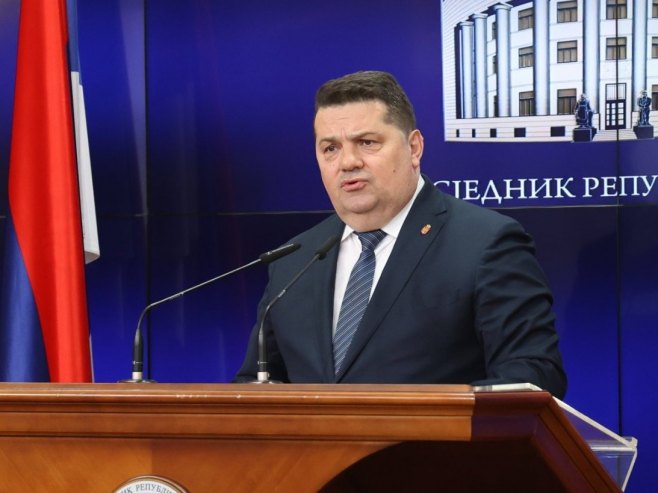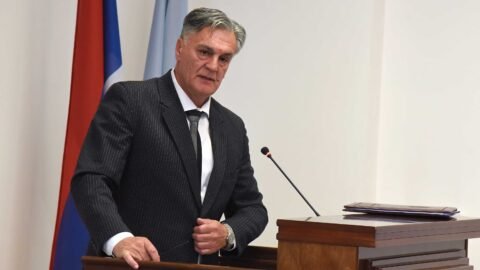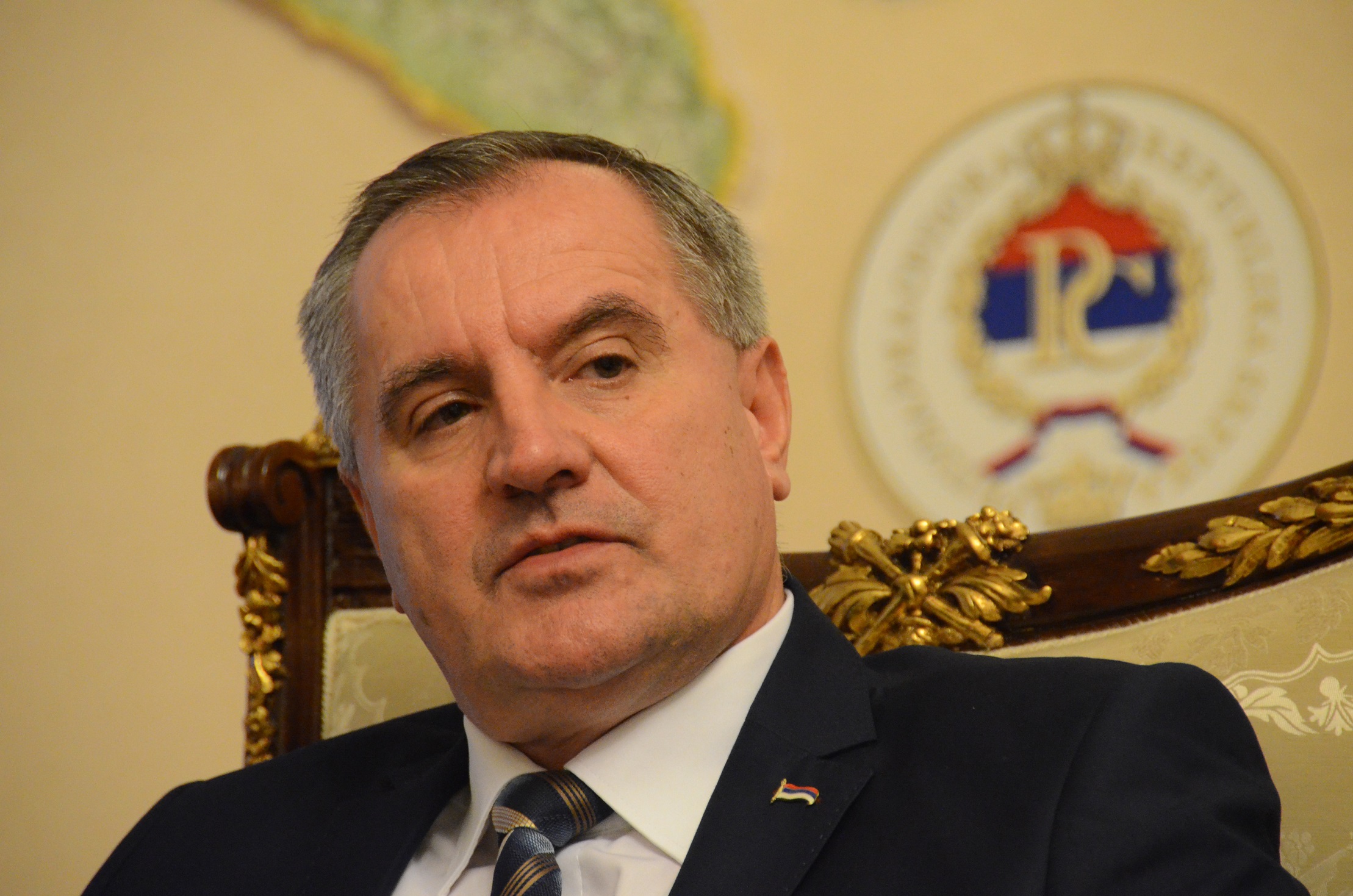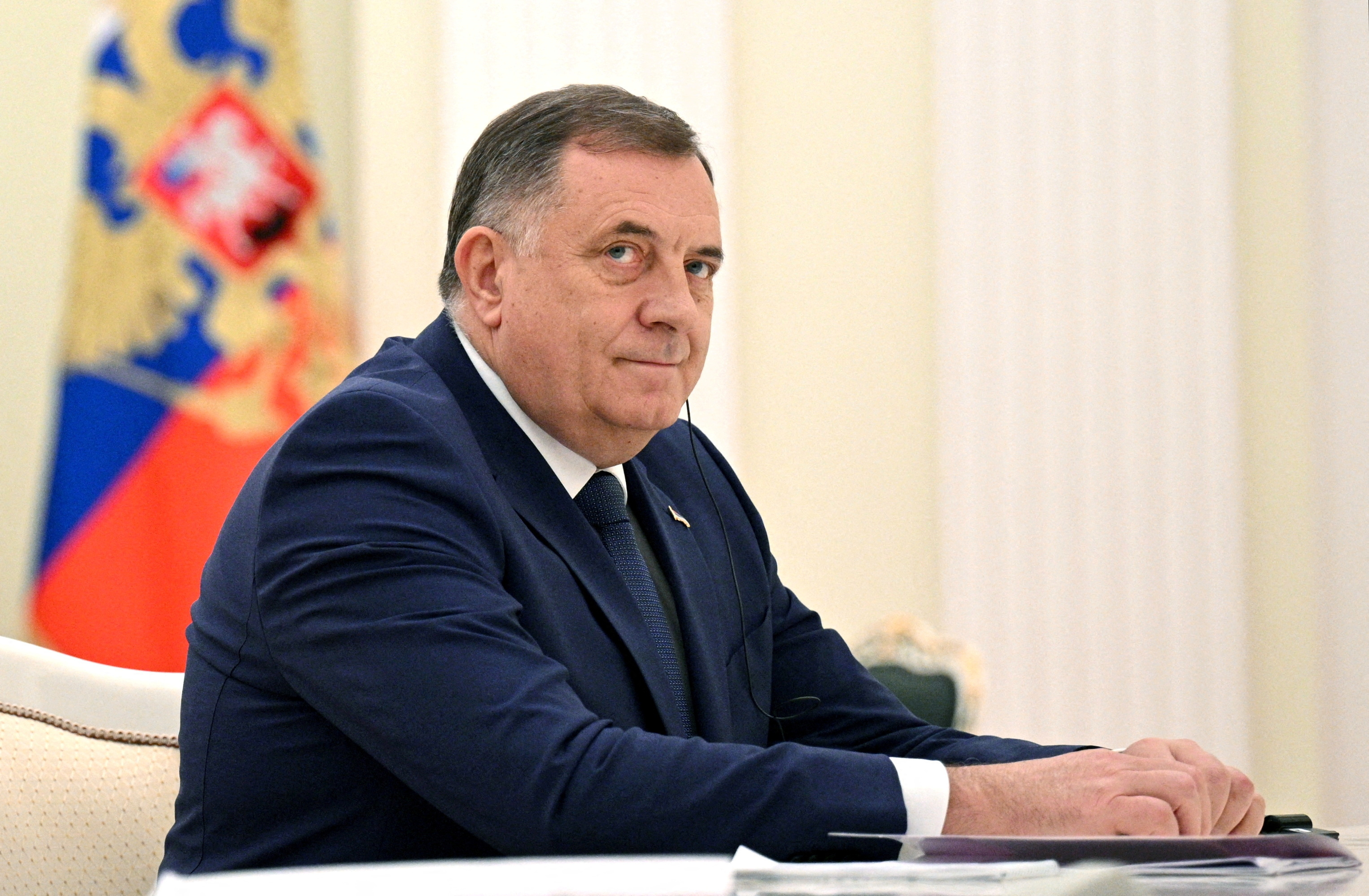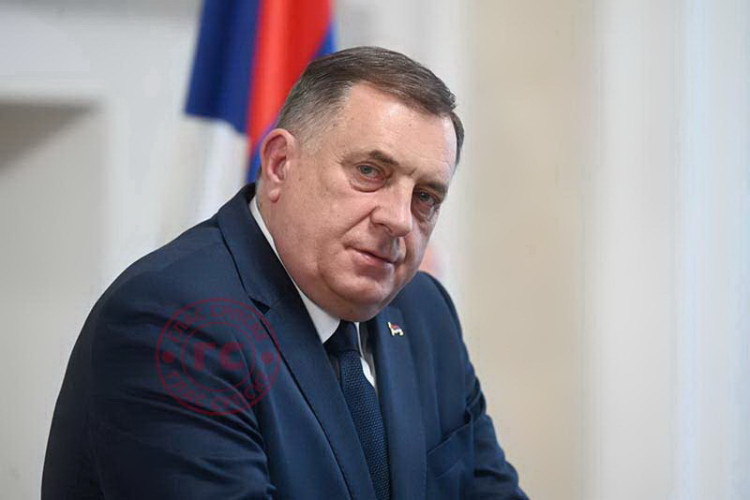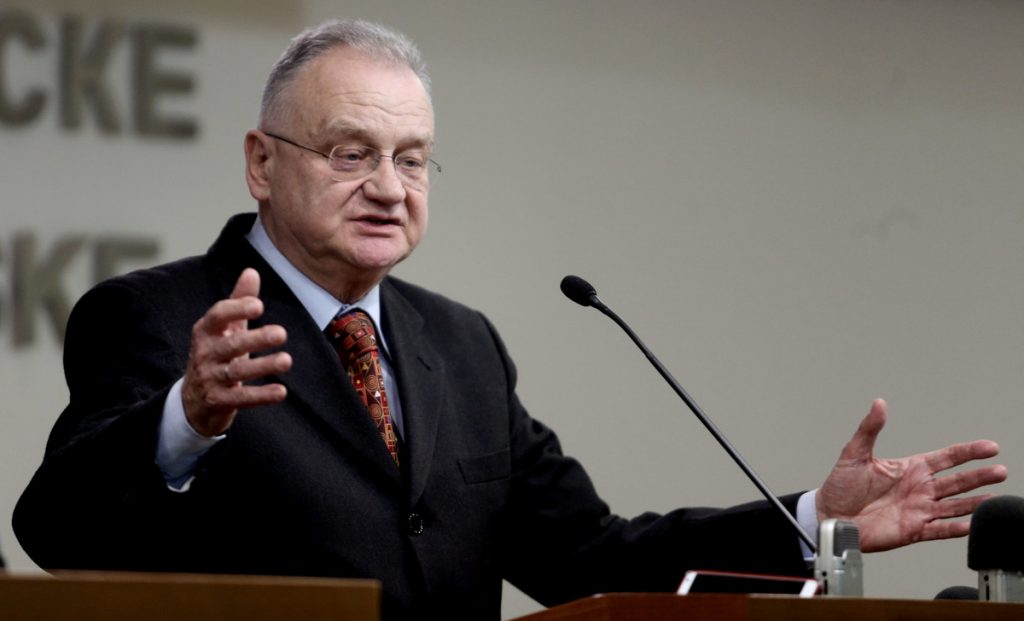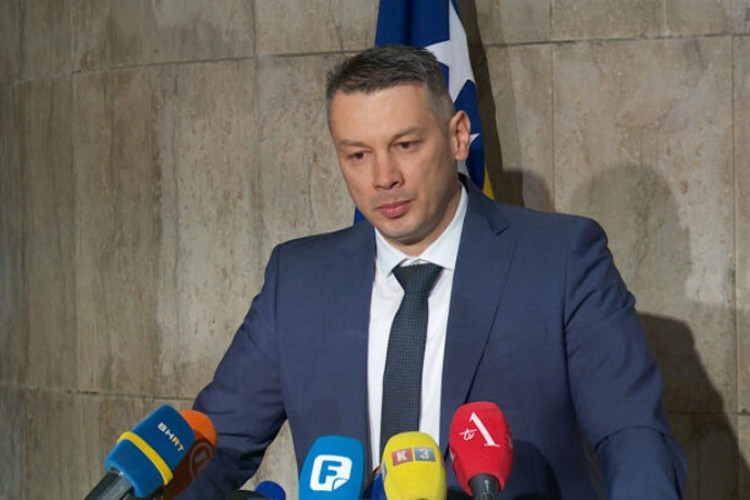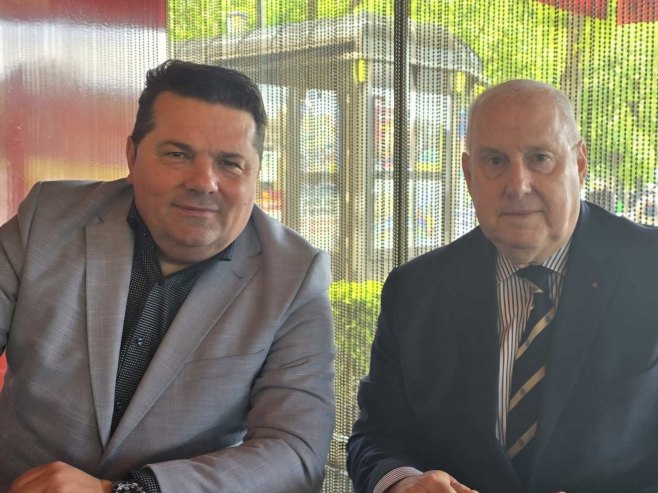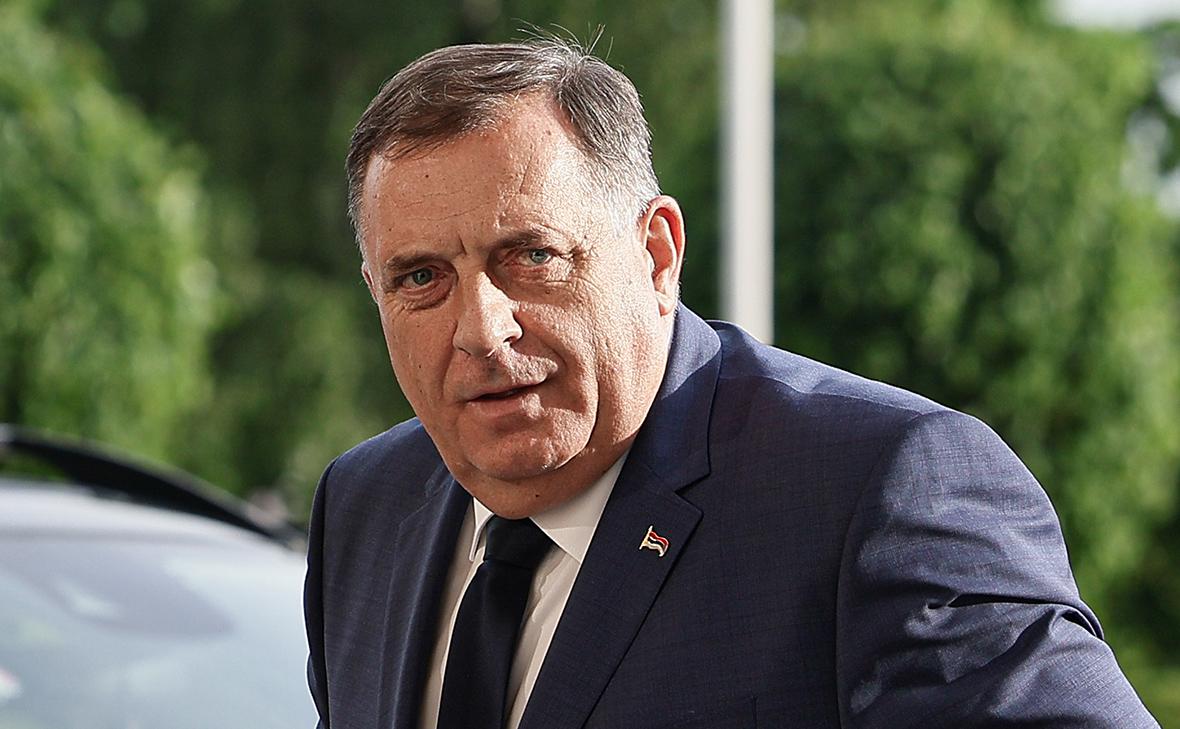President of the Government of Republika Srpska, Radovan Višković, believes that the trial against the President of Republika Srpska, Milorad Dodik, before the Court of Bosnia and Herzegovina for alleged non-compliance with decisions of an illegal high representative, might transform into a trial of Christian Schmidt.
Višković noted that Dodik’s defense has the right, within the entire process and case, to call Schmidt as a key witness, which will be done.
“Schmidt will have to respond to that call, even though it would be good if he didn’t. I believe all of this will turn into a trial of Schmidt, not Dodik as the President of Srpska, and Miloš Lukić as the head of the Official Gazette,” stated Višković and expressed hope that throughout the process, individuals in BiH’s judiciary will maintain their dignity despite various pressures.
He added that even a well-known Croatian lawyer, Anto Nobilo, participating in Dodik’s defense, mentioned that what is happening in this regard in 21st-century BiH, on the Balkans and at the EU’s doorstep, is not normal.
“Nobilo speaks based on legal facts that all this happening in BiH is undemocratic, uncivilized, and unconstitutional. Here, we have a protectorate, a colonial government, and an individual (Schmidt) who falsely presents himself as a high representative, granting himself the right to pass laws and change the Constitution, bypassing existing institutions and elected representatives,” said Višković to Prnjavor Television “K3,” emphasizing that Schmidt and the non-Dayton Peace Implementation Council (PIC) should not be given significance since they don’t exist for Srpska.
He believes that it is distressing for the judicial organs in BiH to lead a process against the democratically elected President of Srpska, calling him to criminal accountability despite carrying out his constitutionally guaranteed duties.
“If Dodik, by signing certain orders proclaiming laws, hadn’t respected Srpska’s Constitution, which is, by all means, aligned with BiH’s Constitution, he could have faced criminal liability,” Višković stated, expressing hope that high representatives like Schmidt, who illegitimately impose laws in BiH, will eventually be held accountable, clarifying their roles.
Regarding recent meetings in Brussels, attended by numerous representatives of all peoples in BiH, Višković noted that, just like a hundred times before, the conversations there were about support and pledging to the European path, but some “changed their tune” as soon as they returned.
“I’m referring to Bosniak representatives, and unfortunately, it’s constantly happening that when they don’t accept something, it’s being swept under the rug,” he said.
“When Serb do it, they’re being portrayed as villains, separatists working against BiH and European integration. The paradox is that nobody advocates for preserving BiH from us in Srpska,” emphasized Višković.
Regarding whether BiH will be closer to EU accession next year, Višković said that in recent meetings in Brussels and discussions with responsible EU individuals, he’s convinced that “Europe is wandering.”
“Often, the question arises: how long will Europe remain in this capacity, as it faces significant challenges? Political parties advocating for their countries’ sovereignty are growing stronger within it,” noted Višković.
Next year, presidential elections are expected in the USA, where Srpska openly supports Donald Trump, who publicly stated that he would easily end the Russian-Ukrainian conflict.
“They can call us pro-Russian or whatever they want, but my wish is for this conflict, as well as the one in the Middle East, to end as soon as possible because we in BiH have paid a high price for it in terms of inflation and rising prices, including energy, over which we had no control,” added the Prime Minister of Srpska.
He mentioned that inflation in Republika Srpska, according to October data, was at 3.8 percent.
“I expect it to be even lower in November and December, dropping to three percent, so that by the end of the year, it might be at a level, perhaps, of around eight percent for 2023,” stated Višković.
Source: RTRS
